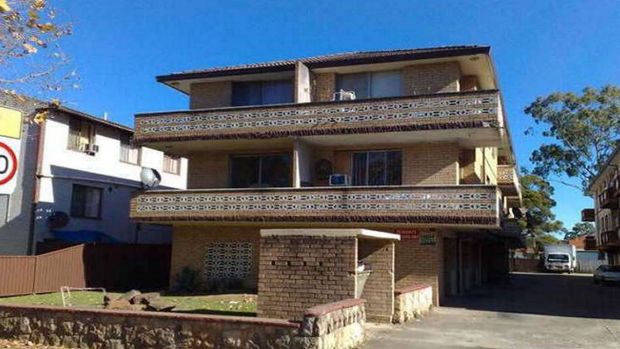Eman Sharobeem's life story reads like an inspiring tale of overcoming the odds: forced into an arranged marriage to her first cousin as a teenager, then widowed at 29 with two young sons, having endured a violent 14-year marriage.
After emigrating from Egypt, she gained PhDs in Psychology, Management and Organisational Leadership, rising to become chief executive of the Immigrant Women's Health Service and earning a list of community honours for her work giving a voice to the underprivileged.
More NSW News Videos
From child bride to community campaigner
Dr Eman Sharobeem migrated to Australia more than 30 year ago, since then she has earned two PhDâs and campaigned against issues such as forced marriage and family violence.
But now the prominent women's refugee advocate, domestic violence campaigner and Australian of the Year finalist has had her assets frozen by the powerful NSW Crime Commission following an investigation into "serious crime related activity" and her "unexplained wealth".
The Crime Commission has secured a restraining order in the NSW Supreme Court that requires Ms Sharobeem not to dispose of three Sydney properties it believes she owns and to disclose her financial interests.

The Supreme Court heard that after receiving a summary of evidence provided by the Independent Commission Against Corruption, the Crime Commission held "a suspicion that the defendant is engaged in serious crime-related activity or activities being the offences of obtaining a financial advantage or causing a financial disadvantage by deception".
"That is an offence punishable by imprisonment for five years involving fraud and accordingly falls within the definition of 'serious criminal offence'," Justice David Davies said in his judgment.
"I have read the summary of evidence document provided to the [Crime Commission] and I am satisfied that [the] suspicion that the offence or offences have been committed is reasonably held."
He ordered Ms Sharobeem and her sons Richard and Charlie to face examination in court.

Ms Sharobeem was chief executive of the Immigrant Women's Health Service in Fairfield for 11 years until 2015.
In June 2016, funding to the not-for-profit organisation from the NSW Health Department was suddenly cut.

A spokesman for South Western Sydney Local Health District said at the time that the governance of the service was under investigation and the organisation was no longer in a position to provide services.
Hundreds of migrant women protested against the announcement of the closure, fearing they would have to vacate their "safe haven". Services have since been picked up by other providers.

Last year, Ms Sharobeem was appointed National Community Engagement Manager at broadcaster SBS. She did not respond to a message left on her SBS voicemail.
Her online CV at social media employment site LinkedIn says she holds a series of public offices including as a member of the multicultural advisory council to the NSW Department of Justice, an advisory board member at Multicultural NSW, and as an ambassador to the NSW Australia Day Council.

The court order freezing Ms Sharobeem's assets includes three properties, a car and a bank account. The orders were made on February 14 without prior warning. The matter returns to court in May.
One of the frozen properties is a four-bedroom house in Abbotsbury that was bought in September 2012 for $676,000. Property services company RPData says the median home price in Abbotsbury has risen more than 46 per cent in that time.
Contacted on Friday, Richard Sharobeem said: "I'd rather not discuss the topic."
Ms Sharobeem's life story has featured prominently in the media over recent years.
Ms Sharobeem has earned a long list of community accolades, including finalist for the NSW Premier's Woman of the Year Award and as a finalist in the local hero category of the Australian of the Year.
In a 2015 interview concerning a nomination for a community award, she said: "The work is a reward, and self-satisfaction is the payment."
In an interview with SBS last year, Ms Sharobeem reflected on her life: "If I would be back home, if I were to be in Egypt, I don't think I would have the same freedom and the same choices and the same abilities open for people," she said.
"And people are listening and other people are learning and I wouldn't have the courage to go out and say I was a victim and look at me now. I'm living a life of victory."
Do you know more? Contact: mevans@fairfaxmedia.com.au













